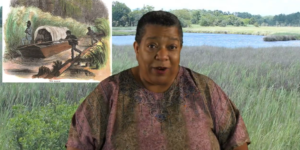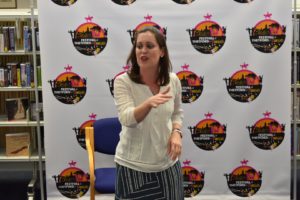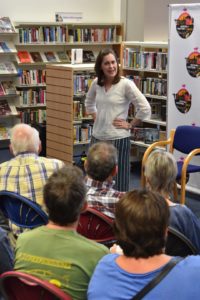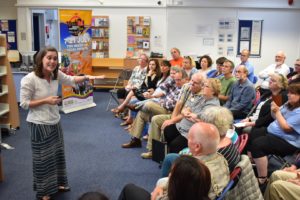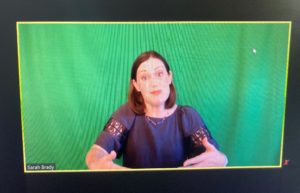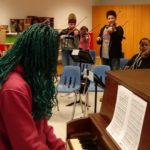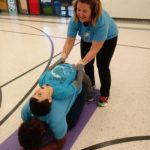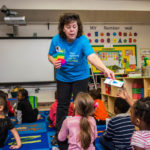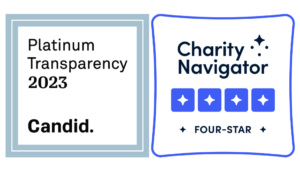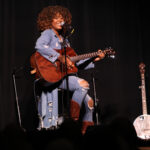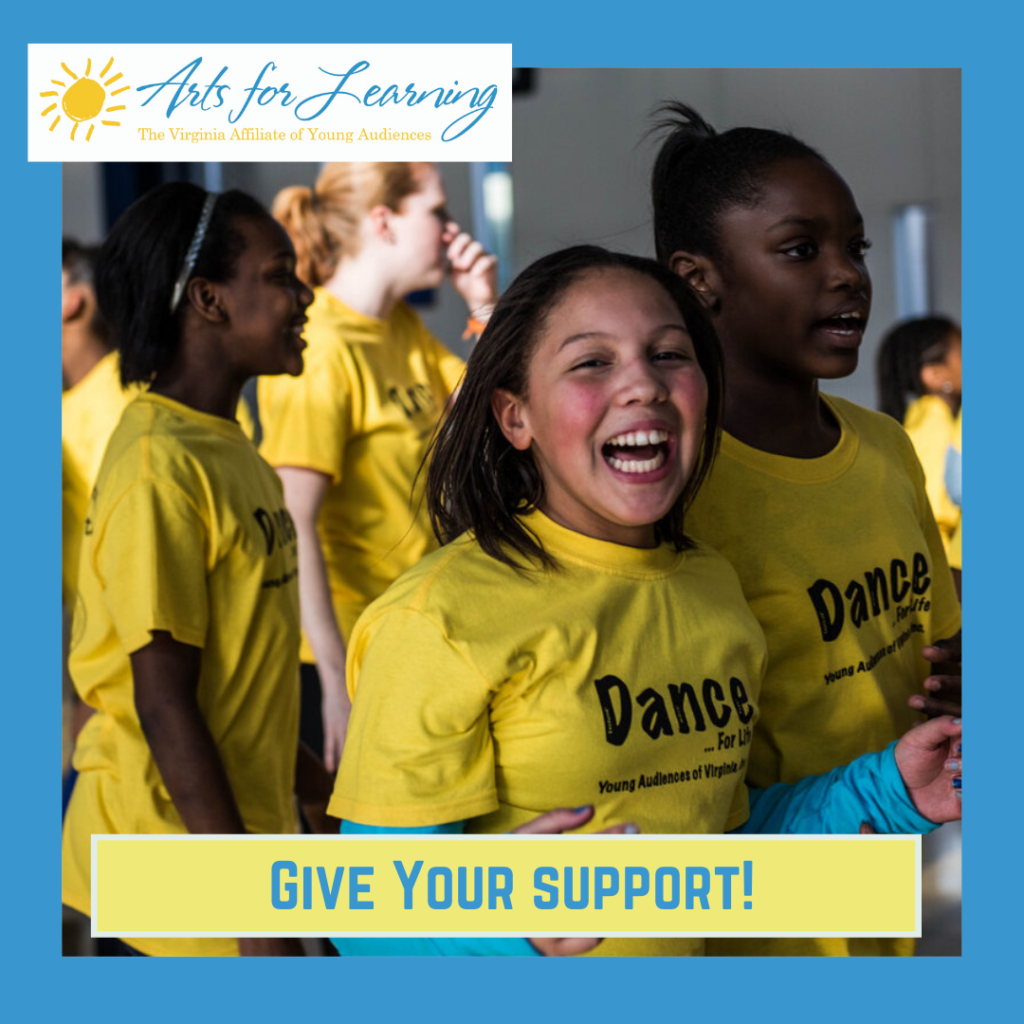Laced with compelling stories of the real-life triumphs and struggles of African-Americans, a new video produced by Arts for Learning (A4L) is set to debut in Norfolk Public Schools. The African American Heritage Trail highlights times of historical interest in the Lower Norfolk area, now part of modern-day Chesapeake, from the 1500s through the early 1900s.
Master storyteller Sheila Arnold, a longtime member of the Arts for Learning roster of professional artists, developed the program by researching the history of the area, writing the script, and working with an A4L production team to record the video. The project was underwritten by Bank of America.
Why did some African Americans fight for the British in the Revolutionary War? Why did slaves flee to the Great Dismal Swamp? And how did a unique ship design—and stripping down to her underwear—help one unforgettable slave escape to freedom? The answers are fascinating and can be found by watching the video, which includes stories related to the American Revolution, Underground Railroad, Civil War, and Reconstruction. The culturally responsive content is aligned with Virginia Standards of Learning for grade five.
Arnold, who goes by “Ms. Sheila” as a storyteller, believes the program is important even beyond telling stories of the African Americans who helped shape the history of the Tidewater area.
Bigger than that, it looks at a continuum, which is often not looked at in history, looking at what happens in a particular place over time.”
“Kids really don’t get a continuum, and that’s why they get confused and ask if Harriet Tubman knows Martin Luther King,” Arnold says. “I hope it will lead to teachers and students wanting to know what happened over time in their own areas and with other ethnic groups as well.”
For the 2021-2022 school year, NPS fifth grade teachers have exclusive access to the video, which is divided into five segments for easy classroom implementation. Teacher guides to facilitate discussion are included for each segment. A4L is providing the video at no charge to the thirty-one NPS elementary or combined elementary/middle schools, which have more than 2,100 fifth graders enrolled.
Arnold and the A4L staff designed the program in collaboration with Norfolk Public Schools’ history/social studies specialist Christopher Mathews, a former teacher of the year at Bay View Elementary School who is also on the A4L artist roster. The African American Heritage Trail features curricular connections to American history, character education, language arts, and reading.
Arts for Learning’s CEO, Christine Everly, calls Arnold’s program one of the best that the organization has ever offered. “We’re thrilled to offer stories few have ever heard before about the important contributions of African Americans with ties to our area. And we’re very grateful to our sponsor, Bank of America, for providing us the financial support to develop this important project.”
The Chesapeake Convention and Visitor’s Center has developed a driving tour and podcast along the African American Heritage Trail, as well as a brochure that describes the points of interest along the route. The Center is providing free brochures to all NPS students who view the video in their classes.
Watch the trailer of the video here:

